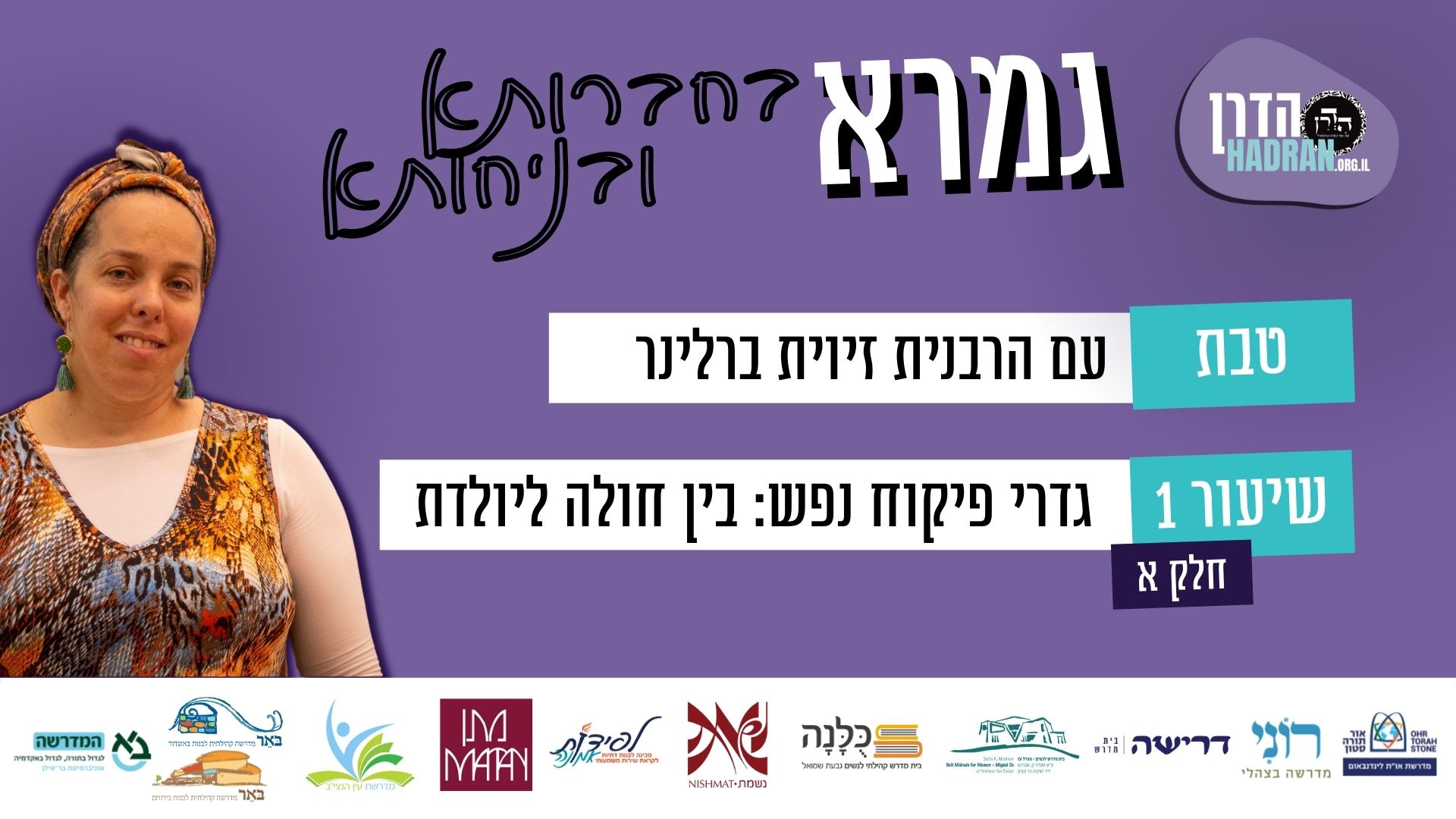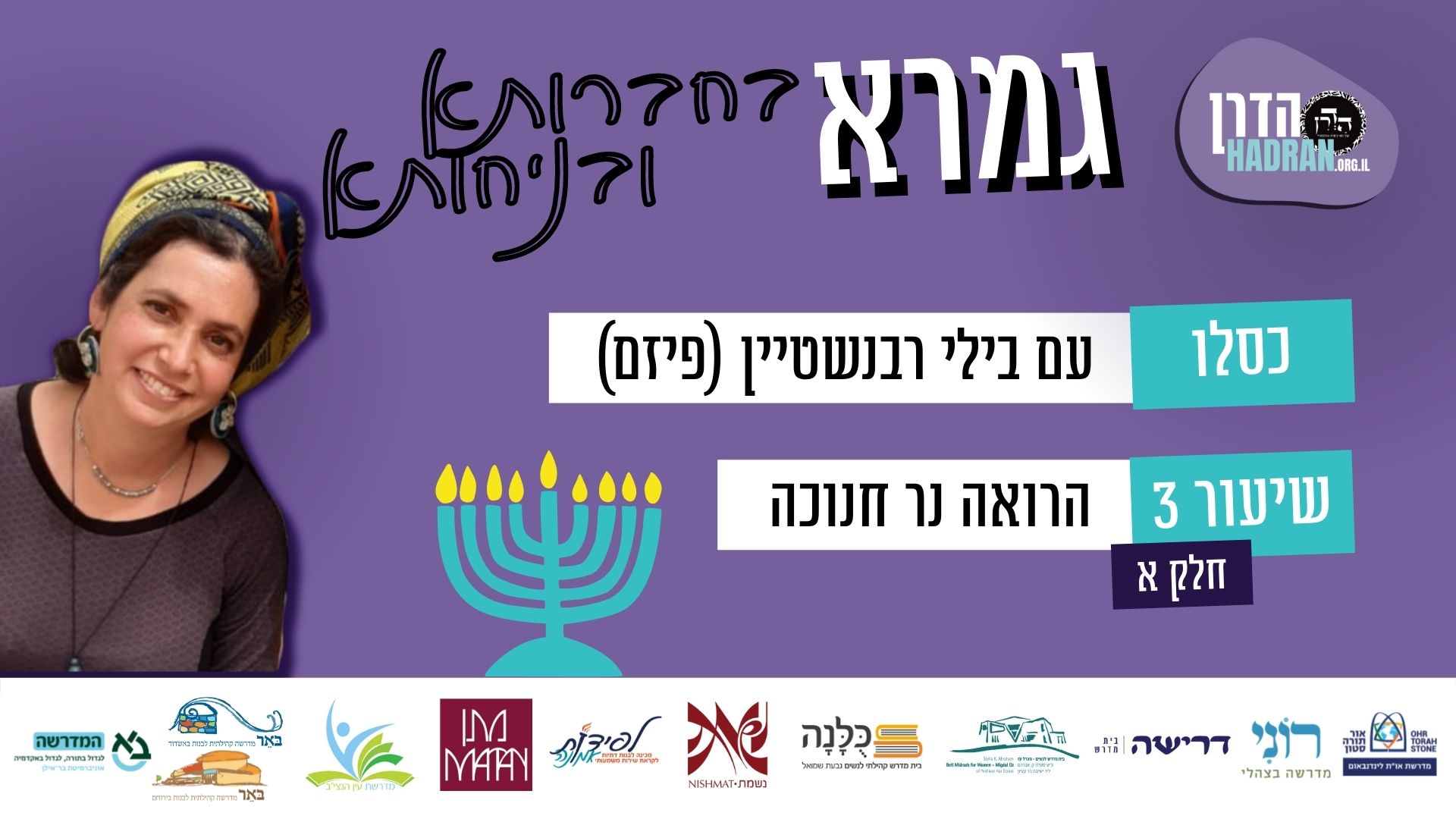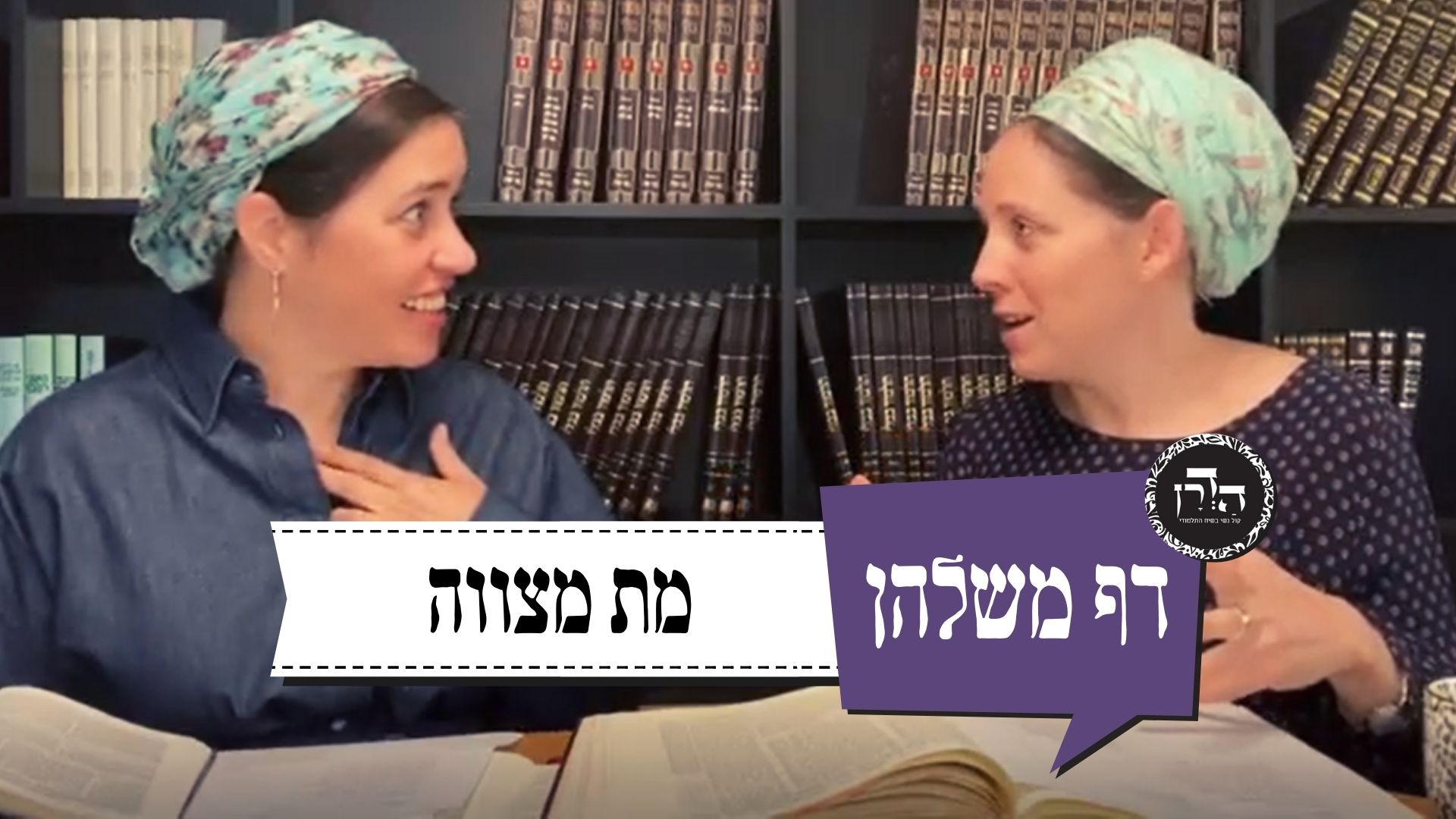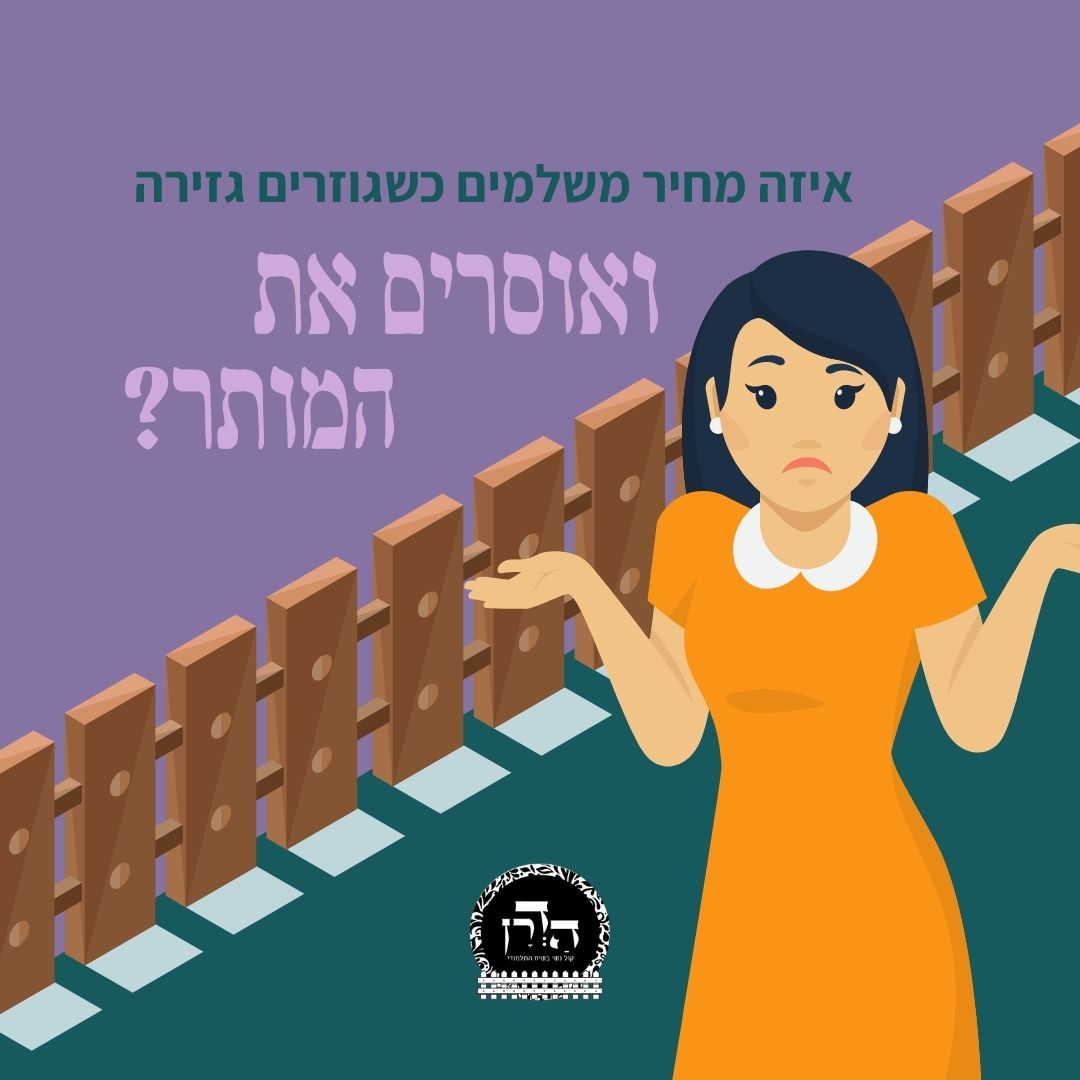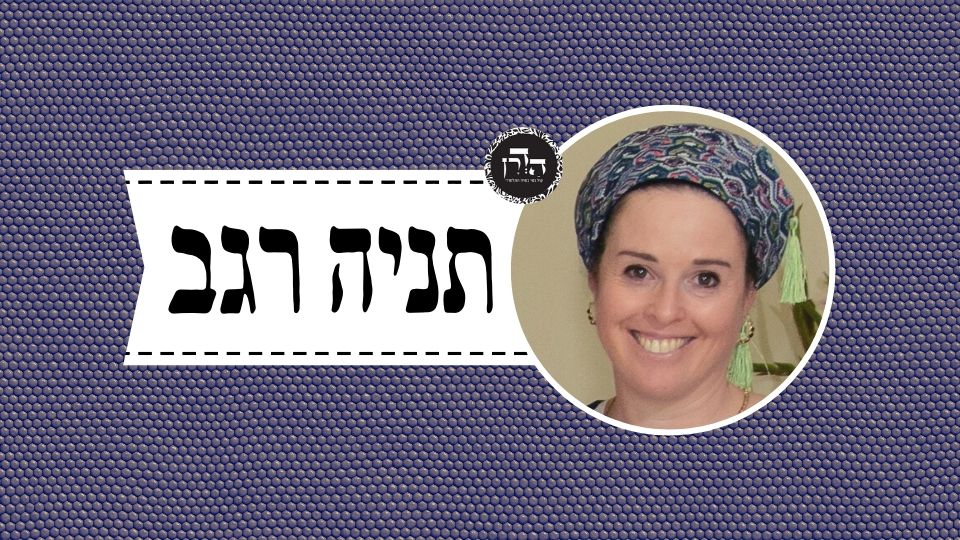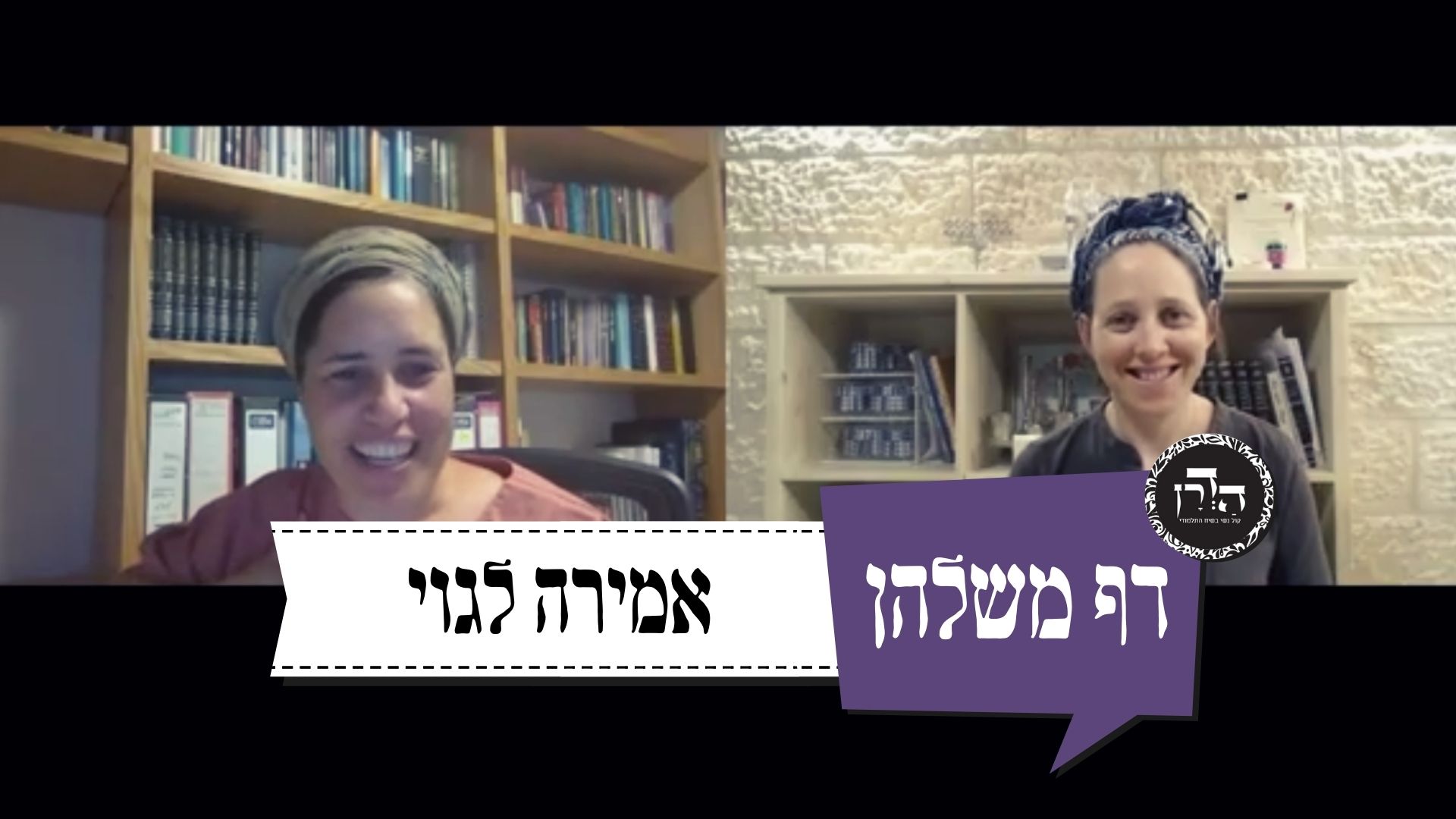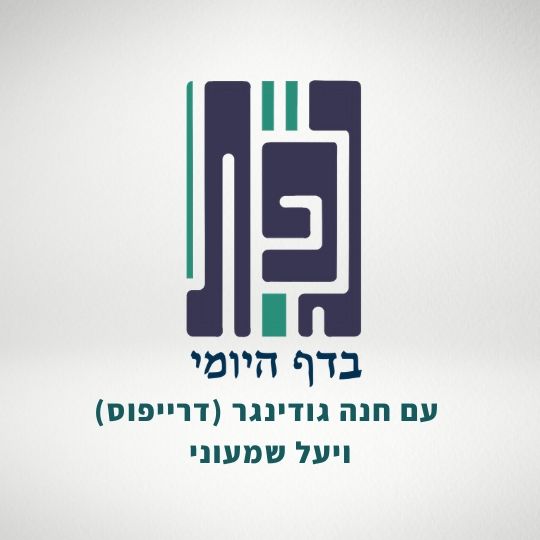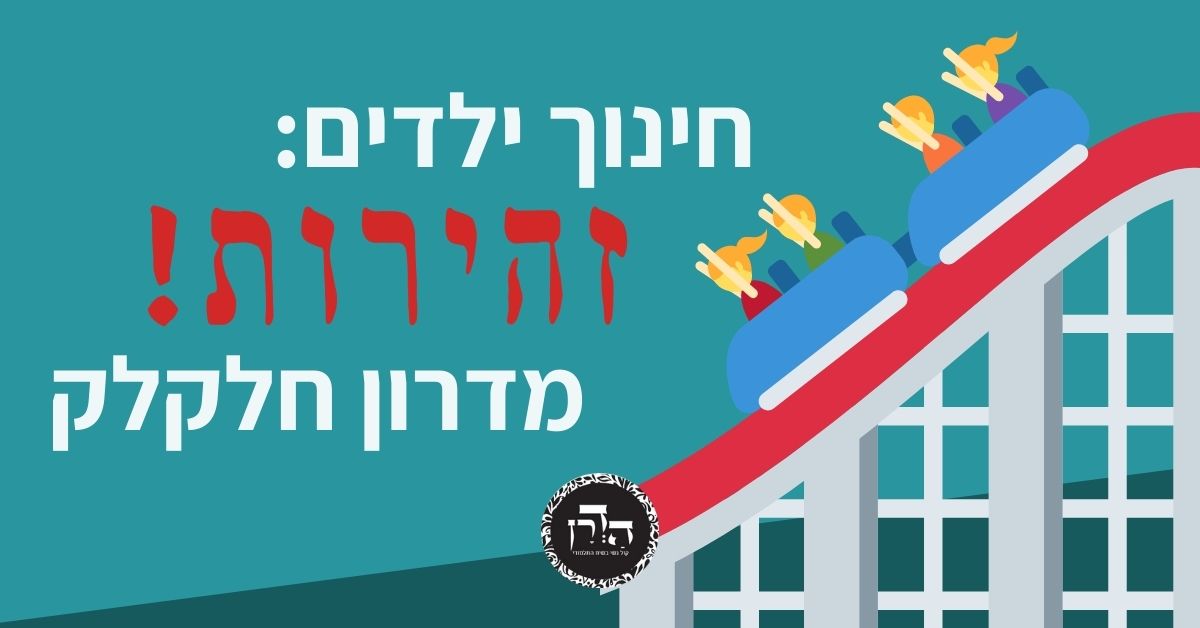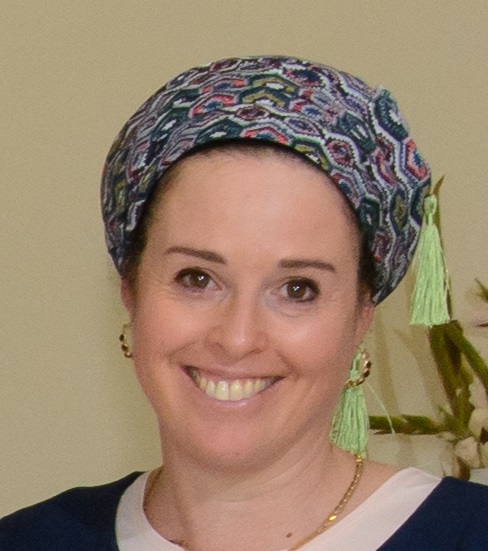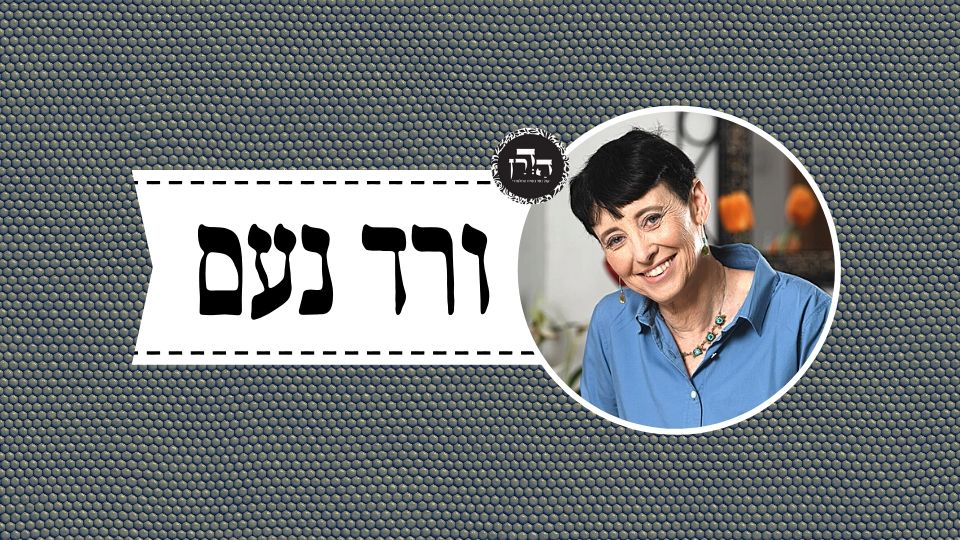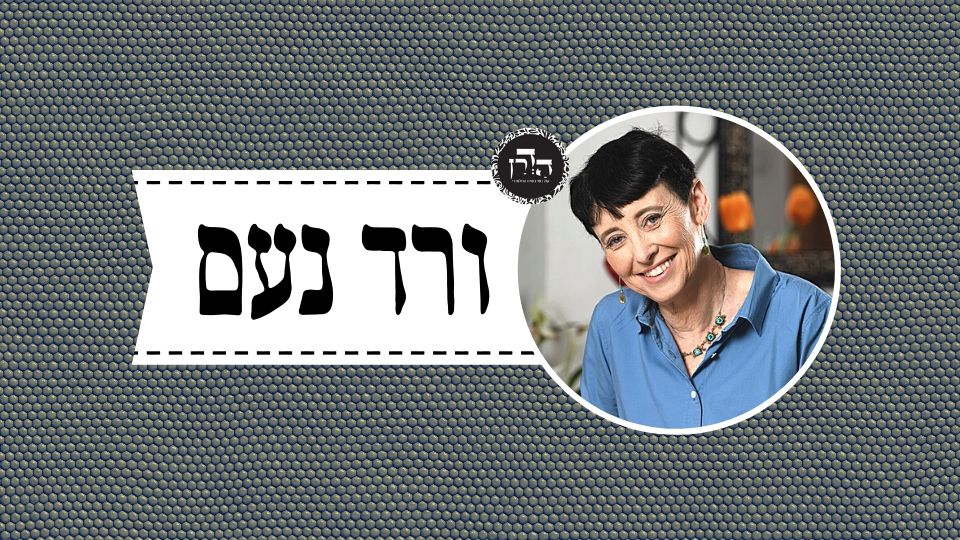הגמרא ממשיכה לדון במלאכות שבת. רב זוטרא אמר שלוש הלכות – אחד בקשר למתיחת חוט בשבת, אחד בקשר ללומד מהמגוש (מה זה מגוש – שני פירושים שונים), ואחד לגבי אדם שיודע לחשוב תקופות ומזלות אבל אינו עושה. האם הצד חלזון ופוצעו חייב רק משום צד או גם משום דש? האם יש דישה רק בגידולי קרקע? למה לא הזכירו נטילת נשמה? דיון השחיטה – האם השוחט חייב גם משום צובע בגלל הדם? למה רשום גם מולחו וגם מעבדו – זה לא אותו דבר? האם מלאכת עיבוד זה רק בעור ולא באוכל? מהן תולדות של ממחק, מחתך, מכה בפטיש? הגמרא מביאה תוספתא בעניין כתיבה ומחיקה – האם חייבים אם כותבים או מחקים אות אחד גדול שתופס מקום של שתי אותיות? מה דורשים מלשום המשנה "אלו” אבות מלאכות. ולמה כתוב "חסר אחת”? המשנה הבאה עוסקת בדין הוצאה מרשות לרשות – על איזה דברים חייבים/לא חייבים ובאיזה שיעור? האם זה עניין סובייקטיבי?
הלימוד השבוע מוקדש לזכות ולשלום הַיְימׇנוֹט אֱמוּנָה בַּת באנצ’י (קָסָאוּ) בת 11 שנעלמה במקום מגוריה בצפת, לפני שנתיים, ביום ט”ז אדר תשפ”ד (25.2.24), ולא נודעו עקבותיה.
הלימוד השבוע מוקדש למען ביטחון המדינה, החיילים והאזרחים, ולמען חירותו של העם האיראני. שנזכה בקרוב שיתקיים בנו הפסוק: "לַיְּהוּדִים הָיְתָה אוֹרָה וְשִׂמְחָה וְשָׂשֹׂן וִיקָר”.
הלימוד השבוע מוקדש לזכות וְלִשְׁלוֹם הָיימָנוֹט אֱמוּנָה בַּת באנצ’י (קָסָאוּ), בת 11 שנעלמה במקום מגוריה בצפת, לפני שנתיים, ביום ט”ז אדר תשפ״ד (25.2.24), ולא נודעו עקבותיה. אנו מתפללים שֶׁתִּמָּצֵא וְתוּשַׁב לביתה במהרה!
רוצה להקדיש שיעור?

כלים
הלימוד השבוע מוקדש לזכות ולשלום הַיְימׇנוֹט אֱמוּנָה בַּת באנצ’י (קָסָאוּ) בת 11 שנעלמה במקום מגוריה בצפת, לפני שנתיים, ביום ט”ז אדר תשפ”ד (25.2.24), ולא נודעו עקבותיה.
הלימוד השבוע מוקדש למען ביטחון המדינה, החיילים והאזרחים, ולמען חירותו של העם האיראני. שנזכה בקרוב שיתקיים בנו הפסוק: "לַיְּהוּדִים הָיְתָה אוֹרָה וְשִׂמְחָה וְשָׂשֹׂן וִיקָר”.
הלימוד השבוע מוקדש לזכות וְלִשְׁלוֹם הָיימָנוֹט אֱמוּנָה בַּת באנצ’י (קָסָאוּ), בת 11 שנעלמה במקום מגוריה בצפת, לפני שנתיים, ביום ט”ז אדר תשפ״ד (25.2.24), ולא נודעו עקבותיה. אנו מתפללים שֶׁתִּמָּצֵא וְתוּשַׁב לביתה במהרה!
כלים
העמקה
רוצה להבין מה באמת קורה מתחת לפני השטח של הסוגיה?
שיעורים, פודקאסטים והרחבות של מיטב המורות שלנו יפתחו לך עוד זוויות וכיווני חשיבה.
חדשה בלימוד הגמרא?
זה הדף הראשון שלך? איזו התרגשות עצומה! יש לנו בדיוק את התכנים והכלים שיעזרו לך לעשות את הצעדים הראשונים ללמידה בקצב וברמה שלך, כך תוכלי להרגיש בנוח גם בתוך הסוגיות המורכבות ומאתגרות.
פסיפס הלומדות שלנו
גלי את קהילת הלומדות שלנו, מגוון נשים, רקעים וסיפורים. כולן חלק מתנועה ומסע מרגש ועוצמתי.
שבת עה
שֶׁכֵּן יְרִיעָה שֶׁנָּפַל בָּהּ דַּרְנָא, קוֹרְעִין בָּהּ וְתוֹפְרִין אוֹתָהּ.
As, when a curtain had a worm which made a tear in it, they would tear the curtain further to lengthen the tear, and that enabled them to then sew it in a manner that obscured the tear.
אָמַר רַב זוּטְרָא בַּר טוֹבִיָּה אָמַר רַב: הַמּוֹתֵחַ חוּט שֶׁל תְּפִירָה בְּשַׁבָּת — חַיָּיב חַטָּאת, וְהַלּוֹמֵד דָּבָר אֶחָד מִן הַמָּגוֹשׁ — חַיָּיב מִיתָה, וְהַיּוֹדֵעַ לְחַשֵּׁב תְּקוּפוֹת וּמַזָּלוֹת וְאֵינוֹ מְחַשֵּׁב — אָסוּר לְסַפֵּר הֵימֶנּוּ.
Rav Zutra bar Toviya said that Rav said: One who tightens the thread of a stitch on Shabbat is liable to bring a sin-offering. If two parts of a garment that were sewn together begin to separate, and one pulls the thread to reattach them, it is tantamount to having sewn them. The Gemara cites additional halakhot cited by Rav Zutra in the name of Rav. And one who learns even one matter from a magosh, a Persian priest, is liable to receive the death penalty. And one who knows how to calculate astronomical seasons and the movement of constellations, and does not do so, one may not speak with him because his actions are improper.
אַמְגּוּשְׁתָּא — רַב וּשְׁמוּאֵל, חַד אָמַר: חָרָשֵׁי, וְחַד אָמַר: גָּדוֹפֵי. תִּסְתַּיֵּים דְּרַב דְּאָמַר גָּדוֹפֵי, דְּאָמַר רַב זוּטְרָא בַּר טוֹבִיָּה אָמַר רַב: הַלּוֹמֵד דָּבָר אֶחָד מִן הַמָּגוֹשׁ חַיָּיב מִיתָה. דְּאִי סָלְקָא דַעְתָּךְ חָרָשֵׁי: הָכְתִיב ״לֹא תִלְמַד לַעֲשׂוֹת״ — אֲבָל אַתָּה לָמֵד לְהָבִין וּלְהוֹרוֹת — תִּסְתַּיֵּים.
The Gemara proceeds to discuss the additional halakhot cited by Rav Zutra bar Toviya. With regard to the magosh, Rav and Shmuel disagreed. One said that they are sorcerers, while the other said they are heretics. The Gemara adds: Conclude that Rav is the one who said that they are heretics, as Rav Zutra bar Toviya said that Rav said: One who learns one matter from the magosh is liable to receive the death penalty. As, if it should enter your mind that they are sorcerers, wasn’t it written: “When you come into the land which the Lord your God gives you, you shall not learn to do after the abominations of those nations. There shall not be found among you any one that makes his son or his daughter to pass through the fire, one that uses divination, a soothsayer, or an enchanter, or a sorcerer” (Deuteronomy 18:9–10)? And the Sages inferred: You shall not learn to do, but you may learn to understand and to teach the topic of sorcery. Apparently, merely learning about sorcery does not violate a prohibition. Only acting upon that learning is prohibited. Rav, who prohibited learning even a single matter from a magosh, must hold that they are heretics, not merely sorcerers. The Gemara states: Indeed, conclude that Rav is the one who said that they are heretics.
אָמַר רַבִּי שִׁמְעוֹן בֶּן פַּזִּי, אָמַר רַבִּי יְהוֹשֻׁעַ בֶּן לֵוִי מִשּׁוּם בַּר קַפָּרָא: כָּל הַיּוֹדֵעַ לְחַשֵּׁב בִּתְקוּפוֹת וּמַזָּלוֹת וְאֵינוֹ מְחַשֵּׁב, עָלָיו הַכָּתוּב אוֹמֵר: ״וְאֵת פֹּעַל ה׳ לֹא יַבִּיטוּ וּמַעֲשֵׂה יָדָיו לֹא רָאוּ״. אָמַר רַבִּי שְׁמוּאֵל בַּר נַחְמָנִי אָמַר רַבִּי יוֹחָנָן: מִנַּיִן שֶׁמִּצְוָה עַל הָאָדָם לְחַשֵּׁב תְּקוּפוֹת וּמַזָּלוֹת — שֶׁנֶּאֱמַר: ״וּשְׁמַרְתֶּם וַעֲשִׂיתֶם כִּי הִיא חׇכְמַתְכֶם וּבִינַתְכֶם לְעֵינֵי הָעַמִּים״, אֵיזוֹ חָכְמָה וּבִינָה שֶׁהִיא לְעֵינֵי הָעַמִּים — הֱוֵי אוֹמֵר: זֶה חִישּׁוּב תְּקוּפוֹת וּמַזָּלוֹת.
Rabbi Shimon ben Pazi said that Rabbi Yehoshua ben Levi said in the name of bar Kappara: Anyone who knows how to calculate astronomical seasons and the movement of constellations and does not do so, the verse says about him: “They do not take notice of the work of God, and they do not see His handiwork” (Isaiah 5:12). And Rabbi Shmuel bar Naḥmani said that Rabbi Yoḥanan said: From where is it derived that there is a mitzva incumbent upon a person to calculate astronomical seasons and the movement of constellations? As it was stated: “And you shall guard and perform, for it is your wisdom and understanding in the eyes of the nations” (Deuteronomy 4:6). What wisdom and understanding is there in the Torah that is in the eyes of the nations, i.e., appreciated and recognized by all? You must say: This is the calculation of astronomical seasons and the movement of constellations, as the calculation of experts is witnessed by all.
הַצָּד צְבִי וְכוּ׳. תָּנוּ רַבָּנַן: הַצָּד חִלָּזוֹן וְהַפּוֹצְעוֹ — אֵינוֹ חַיָּיב אֶלָּא אַחַת. רַבִּי יְהוּדָה אוֹמֵר חַיָּיב שְׁתַּיִם. שֶׁהָיָה רַבִּי יְהוּדָה אוֹמֵר: פְּצִיעָה בִּכְלַל דִּישָׁה. אָמְרוּ לוֹ: אֵין פְּצִיעָה בִּכְלַל דִּישָׁה. אָמַר רָבָא: מַאי טַעְמָא דְּרַבָּנַן — קָסָבְרִי אֵין דִּישָׁה אֶלָּא לְגִדּוּלֵי קַרְקַע. וְלִיחַיַּיב נָמֵי מִשּׁוּם נְטִילַת נְשָׁמָה! אָמַר רַבִּי יוֹחָנָן: שֶׁפְּצָעוֹ מֵת.
We learned in the mishna, among those liable for performing primary categories of labor: One who traps a deer or any other living creature. The Sages taught in a Tosefta: One who traps a ḥilazon and breaks its shell to remove its blood for the dye is liable to bring only one sin-offering. He is not liable for breaking the shell. Rabbi Yehuda says: He is liable to bring two, for performing the prohibited labors of trapping and for threshing, as Rabbi Yehuda would say: The breaking of a ḥilazon is included in the primary category of threshing, as its objective is to extract the matter that he desires from the shell that he does not. The Rabbis said to him: Breaking the shell is not included in the primary category of threshing. Rava said: What is the rationale for the opinion of the Rabbis? They hold: Threshing applies only to produce that grows from the ground. One who extracts other materials from their covering is exempt. The Gemara asks: Even if extracting blood is not considered threshing, let him be liable for taking a life as well. Rabbi Yoḥanan said: This is referring to a case where he broke its shell after it was dead.
רָבָא אָמַר: אֲפִילּוּ תֵּימָא שֶׁפְּצָעוֹ חַי, מִתְעַסֵּק הוּא אֵצֶל נְטִילַת נְשָׁמָה. וְהָא אַבָּיֵי וְרָבָא דְּאָמְרִי תַּרְוַויְיהוּ: מוֹדֶה רַבִּי שִׁמְעוֹן בִּ״פְסִיק רֵישֵׁיהּ וְלֹא יָמוּת״! שָׁאנֵי הָכָא, דְּכַמָּה דְּאִית בֵּיהּ נְשָׁמָה טְפֵי נִיחָא לֵיהּ, כִּי הֵיכִי דְּלֵיצִיל צִיבְעֵיהּ.
Rava said: Even if you say that he broke it when it was alive, he is exempt. Since he had no intention of killing the ḥilazon, he is considered as one who is acting unawares with regard to taking a life. The Gemara raises a difficulty: Didn’t Abaye and Rava both say that Rabbi Shimon, who rules that an unintentional act is permitted, agrees that in a case of: Cut off its head and will it not die, one is liable? One who performs an action that will inevitably result in a prohibited labor cannot claim that he did not intend for his action to lead to that result. Lack of intention is only a valid claim when the result is merely possible, not inevitable. Since one who extracts blood from a ḥilazon inevitably takes its life, how can Rava claim that his action is unintentional? The Gemara answers: Here it is different, as the longer the ḥilazon lives, the better it is for the trapper, so that its dye will become clear. Dye extracted from a live ḥilazon is a higher quality than that which is extracted from a dead one. Rabbi Shimon agrees that one who performs an action with inevitable consequences is liable only in a case where the consequences are not contrary to his interests. Since he prefers that the ḥilazon remain alive as long as possible, he is not liable for the inevitable consequences.
וְהַשּׁוֹחֲטוֹ. שׁוֹחֵט מִשּׁוּם מַאי חַיָּיב? רַב אָמַר: מִשּׁוּם צוֹבֵעַ. וּשְׁמוּאֵל אָמַר: מִשּׁוּם נְטִילַת נְשָׁמָה.
We learned in the mishna, among those liable for performing primary categories of labor: And one who slaughters an animal on Shabbat. The Gemara asks: As there was no slaughter necessary for construction of the Tabernacle, one who slaughters an animal, due to what prohibited labor is he liable? Rav said: He is liable due to dyeing, as in the course of the slaughter the hide is dyed with blood. And Shmuel said: He is liable due to taking a life.
מִשּׁוּם צוֹבֵעַ אִין, מִשּׁוּם נְטִילַת נְשָׁמָה לָא? אֵימָא: אַף מִשּׁוּם צוֹבֵעַ. אָמַר רַב: מִילְּתָא דַּאֲמַרִי, אֵימָא בַּהּ מִילְּתָא, דְּלָא לֵיתוּ דָּרֵי בָּתְרָאֵי וְלִיחֲכוּ עֲלַי: צוֹבֵעַ בְּמַאי נִיחָא לֵיהּ — נִיחָא דְּלִיתַּוַּוס בֵּית הַשְּׁחִיטָה דְּמָא, כִּי הֵיכִי דְּלִיחְזוּהּ אִינָשֵׁי וְלֵיתוּ לִיזְבְּנוּ מִינֵּיהּ.
The Gemara wonders: Is that to say according to Rav, that due to dyeing, yes, he is liable; due to taking a life, no, he is exempt? Rather, emend Rav’s statement and say: He is liable due to dyeing as well. And Rav said: I will say something as an explanation with regard to the statement I said, so that later generations will not come and laugh at me: In what sense is dyeing a desired consequence for him? It is desired that the area of the slaughter will be inundated with blood, so that people will see it freshly dyed and come to purchase fresh meat from him. Therefore, the one slaughtering the animal also wants its neck dyed.
וְהַמּוֹלְחוֹ וְהַמְעַבְּדוֹ. הַיְינוּ מוֹלֵחַ וְהַיְינוּ מְעַבֵּד! רַבִּי יוֹחָנָן וְרֵישׁ לָקִישׁ דְּאָמְרִי תַּרְוַיְיהוּ: אַפֵּיק חַד מִינַּיְיהוּ וְעַיֵּיל שִׂירְטוּט. אָמַר רַבָּה בַּר רַב הוּנָא: הַאי מַאן דְּמָלַח בִּישְׂרָא — חַיָּיב מִשּׁוּם מְעַבֵּד. רָבָא אָמַר: אֵין עִיבּוּד בָּאוֹכָלִין. אָמַר רַב אָשֵׁי: וַאֲפִילּוּ רַבָּה בַּר רַב הוּנָא לָא אָמַר אֶלָּא דְּקָא בָּעֵי לֵיהּ לְאוֹרְחָא, אֲבָל לְבֵיתָא — לָא מְשַׁוֵּי אִינִישׁ מֵיכְלֵיהּ עֵץ.
We learned in the mishna, among those liable for performing primary categories of labor: And one who salts it and one who tans it. The Gemara asks: The prohibited labor of salting is the same as the prohibited labor of tanning, i.e., salting is a stage in the tanning process. Rabbi Yoḥanan and Reish Lakish both said: Remove one of them and replace it with drafting. In their opinion, the labor of drafting, drawing lines on the hide to indicate where it should be cut, should replace salting in the list of thirty-nine labors. Rabba bar Rav Huna said: One who salts meat on Shabbat to preserve it is liable due to the labor of tanning. Rava said: There is no tanning with regard to food. No action taken with food falls into this category. Rav Ashi said: And even Rabba bar Rav Huna said it falls into the category of tanning only when he needs to pack the meat for a trip and salts it thoroughly. However, to eat in the house, a person does not render his food inedible, tantamount to a piece of wood. In that case, he certainly would not salt the meat to a degree that would approximate tanning.
וְהַמְמַחֲקוֹ וְהַמְחַתְּכוֹ. אָמַר רַבִּי אַחָא בַּר חֲנִינָא: הַשָּׁף בֵּין הָעַמּוּדִים בְּשַׁבָּת — חַיָּיב מִשּׁוּם מְמַחֵק. אָמַר רַבִּי חִיָּיא בַּר אַבָּא: שְׁלֹשָׁה דְּבָרִים סָח לִי רַב אָשֵׁי מִשְּׁמֵיהּ דְּרַבִּי יְהוֹשֻׁעַ בֶּן לֵוִי: הַמְגָרֵר רָאשֵׁי כְּלוֹנְסוֹת בְּשַׁבָּת — חַיָּיב מִשּׁוּם מְחַתֵּךְ, הַמְמָרֵחַ רְטִיָּה בְּשַׁבָּת — חַיָּיב מִשּׁוּם מְמַחֵק, וְהַמְסַתֵּת אֶת הָאֶבֶן בְּשַׁבָּת — חַיָּיב מִשּׁוּם מַכֶּה בְּפַטִּישׁ. אָמַר רַבִּי שִׁמְעוֹן בֶּן קִיסְמָא אָמַר רַבִּי שִׁמְעוֹן בֶּן לָקִישׁ: הַצָּר צוּרָה בִּכְלִי וְהַמְנַפֵּחַ בִּכְלִי זְכוּכִית — חַיָּיב מִשּׁוּם מַכֶּה בְּפַטִּישׁ. אָמַר רַב יְהוּדָה: הַאי מַאן דְּשָׁקֵיל אַקּוּפֵי מִגְּלִימֵי — חַיָּיב מִשּׁוּם מַכֶּה בְּפַטִּישׁ. וְהָנֵי מִילֵּי דְּקָפֵיד עֲלַיְיהוּ.
We learned in the mishna, among those liable for performing primary categories of labor: And one who smooths it and one who cuts it. Rabbi Aḥa bar Ḥanina said: One who rubs the hide between the pillars on Shabbat, i.e., places the skin between pillars made for that purpose (Rav Hai Gaon) and rubs it between them, is liable due to the labor of smoothing. Rav Ḥiyya bar Abba said: Rav Ashi told me three statements in the name of Rabbi Yehoshua ben Levi: One who planes the tops of posts on Shabbat to make them even is liable due to the labor of cutting, due to his insistence that they all be equal. One who spreads a bandage onto a wound on Shabbat is liable due to the labor of smoothing. And one who chisels a stone on Shabbat is liable due to the labor of striking a blow with a hammer, as he thereby completes work on the stone. Rabbi Shimon ben Kisma said that Rabbi Shimon ben Lakish said: One who engraves a figure onto an earthenware vessel and one who blows in order to craft a glass vessel is liable due to the labor of striking a blow with a hammer. Rav Yehuda said: One who removes protruding, irregular threads from a cloak is liable due to the labor of striking a blow with a hammer. And that applies only if he is particular about them and would not wear the garment until all protruding threads are removed. In that case, work on the garment is not complete until the threads are removed.
וְהַכּוֹתֵב שְׁתֵּי אוֹתִיּוֹת. תָּנוּ רַבָּנַן: כָּתַב אוֹת אַחַת גְּדוֹלָה וְיֵשׁ בִּמְקוֹמָהּ לִכְתּוֹב שְׁתַּיִם — פָּטוּר. מָחַק אוֹת גְּדוֹלָה, וְיֵשׁ בִּמְקוֹמָהּ לִכְתּוֹב שְׁתַּיִם — חַיָּיב. אָמַר רַבִּי מְנַחֵם בְּרַבִּי יוֹסֵי: זֶה חוֹמֶר בַּמּוֹחֵק מִבַּכּוֹתֵב.
We learned in the mishna, among those liable for performing primary categories of labor: And one who writes two letters. The Sages taught: One who wrote one large letter, and in its space there is room to write two, is exempt, as he wrote only one letter. However, one who erased one large letter, and in its space there is room to write two, is liable. Rav Menaḥem, son of Rabbi Yosei, said: And that is a greater stricture with regard to erasing than with regard to writing. Although greater stringency is usually accorded to creative acts, here the destructive act of erasing is more stringent. Although he erased only one letter, he made room for two, which is the essence of the prohibited labor.
הַבּוֹנֶה, וְהַסּוֹתֵר, הַמְכַבֶּה, וְהַמַּבְעִיר, וְהַמַּכֶּה בְּפַטִּישׁ. רַבָּה וְרַבִּי זֵירָא דְּאָמְרִי תַּרְוַיְיהוּ: כֹּל מִידֵּי דְּאִית בֵּיהּ גְּמַר מְלָאכָה חַיָּיב מִשּׁוּם מַכֶּה בְּפַטִּישׁ.
We learned in the mishna, among those liable for performing primary categories of labor: One who builds and one who dismantles; one who extinguishes and one who kindles; and one who strikes a blow with a hammer. With regard to the labor of striking a blow with a hammer, it is Rabba and Rabbi Zeira who both stated a principle: One who performs any action on Shabbat that contains an element of completion of work is liable for the labor of striking a blow with a hammer.
״אֵלּוּ אֲבוֹת מְלָאכוֹת״. ״אֵלּוּ״ — לְאַפּוֹקֵי מִדְּרַבִּי אֱלִיעֶזֶר, דִּמְחַיֵּיב עַל תּוֹלָדָה בִּמְקוֹם אָב. ״חָסֵר אַחַת״ — לְאַפּוֹקֵי מִדְּרַבִּי יְהוּדָה, דְּתַנְיָא: רַבִּי יְהוּדָה מוֹסִיף אֶת הַשּׁוֹבֵט וְהַמְדַקְדֵּק. אָמְרוּ לוֹ: שׁוֹבֵט הֲרֵי הוּא בִּכְלַל מֵיסֵךְ, מְדַקְדֵּק הֲרֵי הוּא בִּכְלַל אוֹרֵג.
The mishna concludes: These are the primary categories of labor. The Gemara explains that the emphasis on the word these, indicating these and no others, comes to exclude the opinion of Rabbi Eliezer, who renders one liable for the performance of a subcategory of prohibited labor when performed together with a primary category under which it is subsumed. Rabbi Eliezer deems one who performs two prohibited labors, a primary category and its subcategory, liable to bring two sin-offerings. In his opinion, one who unwittingly performed all the labors in one lapse of awareness would be liable to bring more than thirty-nine sin-offerings. Therefore, the mishna emphasizes that there are only thirty-nine primary categories of prohibited labor, and one could not possibly be liable to bring a greater number of sacrifices. When the mishna repeats that the labors number forty-less-one, that is to exclude the opinion of Rabbi Yehuda. As it was taught in a baraita: Rabbi Yehuda added lining up the threads of the warp and beating the threads of the woof to the list of primary categories of labor. They said to him: Lining up is a subcategory subsumed under the primary category of stretching the threads of the warp within the loom, since both involve arranging the threads of the warp. Beating is subsumed under the primary category of weaving. The mishna teaches that there are no more than thirty-nine primary categories of labor.
מַתְנִי׳ וְעוֹד כְּלָל אַחֵר אָמְרוּ: כׇּל הַכָּשֵׁר לְהַצְנִיעַ וּמַצְנִיעִין כָּמוֹהוּ וְהוֹצִיאוֹ בְּשַׁבָּת — חַיָּיב חַטָּאת עָלָיו. וְכֹל שֶׁאֵינוֹ כָּשֵׁר לְהַצְנִיעַ וְאֵין מַצְנִיעִין כָּמוֹהוּ וְהוֹצִיאוֹ בְּשַׁבָּת — אֵינוֹ חַיָּיב אֶלָּא הַמַּצְנִיעוֹ.
MISHNA: And they stated an additional principle with regard to the halakhot of Shabbat. Anything fit to store, in the sense that it is large enough to make it worthwhile to store for future use, and people typically store items like it, and one carried it out into a prohibited domain on Shabbat, he is liable to bring a sin-offering for that action. And anything not fit to store and people typically do not store items like it, since it is too insignificant to warrant storage, and one carried it out on Shabbat, only the one who stores it is liable. By storing the item, one indicates that the item is significant to him, even though it is not significant for the typical person. Therefore, he alone is liable for carrying it out into a prohibited domain.
גְּמָ׳ ״כׇּל הַכָּשֵׁר לְהַצְנִיעַ״ לְאַפּוֹקֵי מַאי? רַב פָּפָּא אָמַר: לְאַפּוֹקֵי דַּם נִדָּה. מָר עֻוקְבָא אָמַר: לְאַפּוֹקֵי עֲצֵי אֲשֵׁרָה. מַאן דְּאָמַר דַּם נִדָּה, כׇּל שֶׁכֵּן עֲצֵי אֲשֵׁרָה. מַאן דְּאָמַר עֲצֵי אֲשֵׁרָה, אֲבָל דַּם נִדָּה מַצְנַע לֵיהּ לְשׁוּנָּרָא. וְאִידַּךְ? — כֵּיוָן דְּחָלְשָׁא לָא מַצְנַע לֵיהּ.
GEMARA: With regard to the principle in the mishna: Anything fit to store, the Gemara asks: What does it come to exclude? In the opinion of the tanna, what is not fit for storage? Rav Pappa said: It comes to exclude the blood of a menstruating woman. Mar Ukva said: It comes to exclude the wood of a tree designated for idolatry [ashera]. Since one may derive no benefit from a tree designated for idolatry, it has no monetary value. The Gemara explains these opinions: The one who said that blood of a menstruating woman is not fit for storage, all the more so that the wood of an ashera is unfit, as, by Torah law, one is required to destroy it. However, according to the one who said that the wood of an ashera is unfit for storage, the blood of a menstruating woman is fit, as one stores it to feed to the cat. Although it is not typically stored, it does have some use. And the other, who holds that the blood of a menstruating woman is not fit for any use, isn’t it fit for use as cat food? In his opinion, since feeding a person’s blood to an animal weakens that person, one does not store it.
אָמַר רַבִּי יוֹסֵי בַּר חֲנִינָא הַאי דְּלָא כְּרַבִּי שִׁמְעוֹן, דְּאִי כְּרַבִּי שִׁמְעוֹן, הָאָמַר: לֹא אָמְרוּ כׇּל הַשִּׁיעוּרִין הַלָּלוּ אֶלָּא לְמַצְנִיעֵיהֶן.
Rabbi Yosei bar Ḥanina said: All of these objective criteria mentioned in our mishna are not in accordance with the opinion of Rabbi Shimon, as, if one would attempt to say that the mishna is in accordance with the opinion of Rabbi Shimon, didn’t he say: The Sages in the mishna only stated all these fixed measures for items carried out with regard to those who store them? Only one who stores those items is liable for carrying them. However, one who does not store the item, and for whom it is insignificant, is not liable even if that item met the measure for liability delineated in the mishna.
וְכֹל שֶׁאֵינוֹ כָּשֵׁר לְהַצְנִיעַ.
We learned in the mishna: And anything not fit to store, that is too insignificant to warrant storage, only one who stores it is liable for carrying it out.


